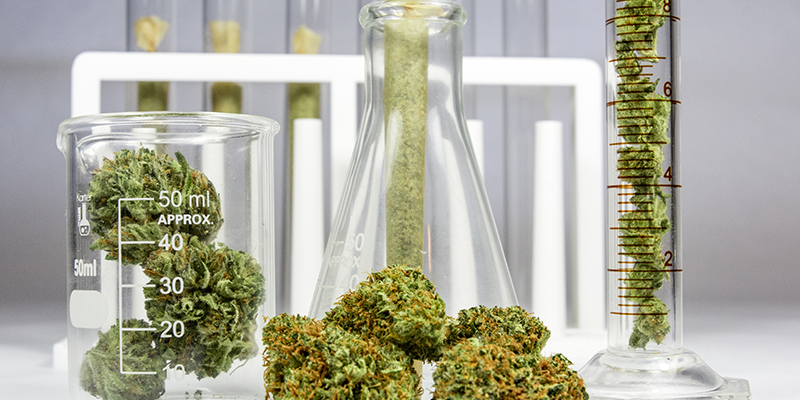Cannabis Lab Testing Continues to Evolve in Washington

The Importance of Regulation in Cannabis Lab Testing
The cannabis industry in Washington State has gone through a considerable evolution since the first recreational store opened in the summer of 2014.
We have seen changes in cannabis regulations and laws that have affected packaging, possession limits, employee training, patient home grows, the types of edibles that can be sold, and even gun ownership. In an ideal world, such changes improve quality of the product, protect public health, and satisfy federal authorities. Cannabis lab testing is a subset of the industry that has the potential to help in all three areas.
Lab testing of cannabis and cannabis products is a critical part of the success of the overall industry. It's so essential that, according to a recent study, it's posed to be worth $1.4 billion in the future.
Because testing is such an integral part of creating a regulated and safe industry, it, in turn, needs to be closely monitored. In 2017, the Washington Liquor and Cannabis Board suspended the certification of a Bellingham Lab for an unnaturally low number of failed tests due to microbial content and other sub-par professional practices. The lab had also been producing results that showed the THC, the main psychoactive compound in cannabis, levels in samples to be abnormally high.
In the days of black market marijuana and the early days of the minimally-regulated medical marijuana movement, growers just needed a good-looking, strong smelling product, which was cured well and given a catchy strain name. This often meant that different growers could offer a similarly named product which often had varying chemical components. There were no standards or requirements, so patients had to build relationships with the growers themselves in order to develop a trust in their product.
Under legalization and state regulation, the situation has improved, but it's not without its challenges.
For example, Washington retailers are not allowed to have cannabis in a package that allows the consumer to smell the product. We can't simply smell the product the way you can in a cigar shop -- all we have to go on is how the flower/bud looks, its brand name, and its packaging.
That's where a good cannabis testing lab changes the game. An informed consumer considers the label, cannabinoid, and moisture content, ratios of THC to its non-psychoactive relative, CBD, and other considerations like terpene content. Terpenoids are the organic compounds that make fruits, spices, and flowers smell the way they do. Terpenes give grapefruit its smell the same way it gives a particular cannabis plant its own, distinctive character. More importantly, they are also thought to have wide-ranging medical benefits.
To learn more about how lab testing and regulation has evolved, we spoke with Nick Mosely of Confidence Analytics, a Washington Lab that has worked to help develop standardized practices for all cannabis testing labs state-wide. Mosely is also a board member of the Cannabis Alliance, the state's largest professional organization of licensees and ancillary industry businesses.
Why should a customer care about how labs operate?
If any purchase decision is going to be made based on the label, then the integrity of the lab is critical to that decision.
In order to predict the effects of a drug, one must know the content of that drug, and in the case of cannabis, it is actually a complex drug cocktail insofar as it contains many active ingredients.
As 2018 begins what excites you about the state of cannabis testing in Washington?
The legislature is currently opening up to discussing the role of lab testing and how it impacts the state's economy.
We are making headway in Olympia towards more robust government involvement in the oversight and standardization of the cannabis labs.
What efforts are labs making to better communicate with one another?
A majority of the cannabis labs in Washington state have organized under the Cannabis Alliance and are now cooperatively working towards standardizing their practice.
Collectively, we are working with ASTM International to publish standards that the rest of the world can follow.
What are your hopes for the future of lab testing?
I hope that understanding continues to grow among the public that marijuana is not just THC, that this is a complex botanical drug that does not fit the western prescriptive model of medicine.
I hope that the industry and the community gain more appreciation and understanding of the complexity of marijuana, and an appreciation for its diversity in form and function.
We appreciate efforts like these initiated by licensees to further improve the industry for all of its members. If we cannot rely upon lab data, then related research will be suspect. If customers cannot trust the label on their product, we fail to protect and educate them.
The next time you shop for a cannabis product, take a close look at the label to consider cannabinoid and terpene content. While you're at it, pay attention to whom tested the product. They are a critical part of the experience.